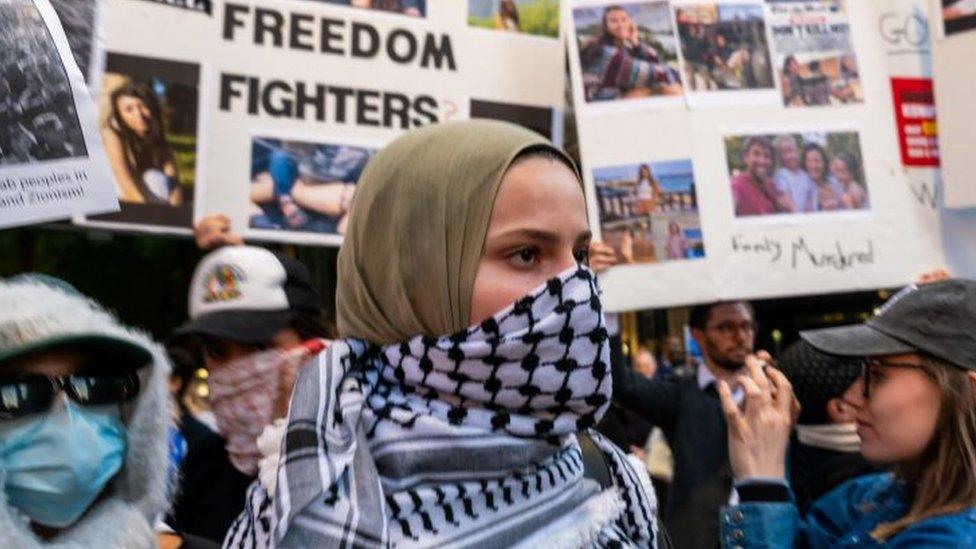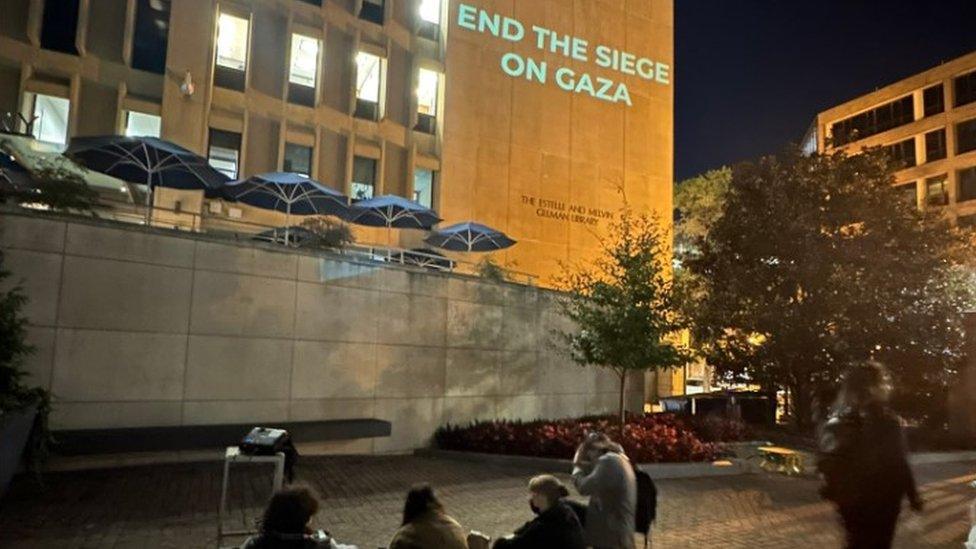USC student's graduation speech cancelled in Israel-Gaza hate row
- Published

Asna Tabassum accused USC of abandoning her
The University of Southern California (USC) has cancelled a student's graduation speech amid backlash over her social media activity on Israel.
USC cited "substantial risks" to campus security in the decision to halt the Muslim student's address.
But Asna Tabassum said she was the target of "a campaign of hate meant to silence my voice".
Ms Tabassum is the 2024 valedictorian, a student picked out for high academic scores and involvement in campus life.
The decision to cancel her speech came after claims that her social media activity was antisemitic. A debate about free speech on US college campuses has intensified since the Israel-Gaza war erupted last October.
Ms Tabassum's Instagram account links to a website that criticises Israel and calls for its "complete abolishment", instead arguing for a "one-state solution... in which both Arabs and Jews can live together".
The website also claims that "Zionism is a racist settler-colonial ideology that advocates for a Jewish ethnostate built on Palestinian land".
Pro-Israel groups called for the university to reconsider her selection as valedictorian.
One campus group, Trojans for Israel, said that although it "strongly supports the right to free expression - including informed criticism of the Israeli government... rhetoric that denies the right of the Jewish people to self-determination or calls for the destruction of the only Jewish state in the world must be denounced as antisemitic bigotry".
In a statement on Monday, Ms Tabassum said she was "shocked" and "profoundly disappointed" by the university's decision.
"I am not surprised by those who attempt to propagate hatred. I am surprised that my own university - my home for four years - has abandoned me," she wrote.
"By cancelling my speech, USC is only caving to fear and rewarding hatred," added Ms Tabassum, who studied biomedical engineering with a minor in resistance to genocide, according to a profile on the college website.
Ms Tabassum later told the BBC's US partner CBS News that she had not been presented evidence for the security fears.
She added that she would not apologise for her activity on Instagram, but clarified she was "committed to human rights for all people".
In an email to campus on Monday, Andrew Guzman, the provost and senior vice-president for academic affairs, said the decision was necessary for "campus security and safety" at the graduation event, which draws around 65,000 people.
"The intensity of feelings, fuelled by both social media and the ongoing conflict in the Middle East, has grown to include many voices outside of USC and has escalated to the point of creating substantial risks relating to security and disruption at commencement," Mr Guzman wrote.
"To be clear: This decision has nothing to do with freedom of speech," he added. "There is no free-speech entitlement to speak at a commencement. The issue here is how best to maintain campus security and safety, period."
The Council on American-Islamic Relations has called for Ms Tabassum's reinstatement as a speaker, and criticised the university by saying it "cannot hide its cowardly decision behind a disingenuous concern for security".
Related topics
- Published16 October 2023

- Published25 October 2023
